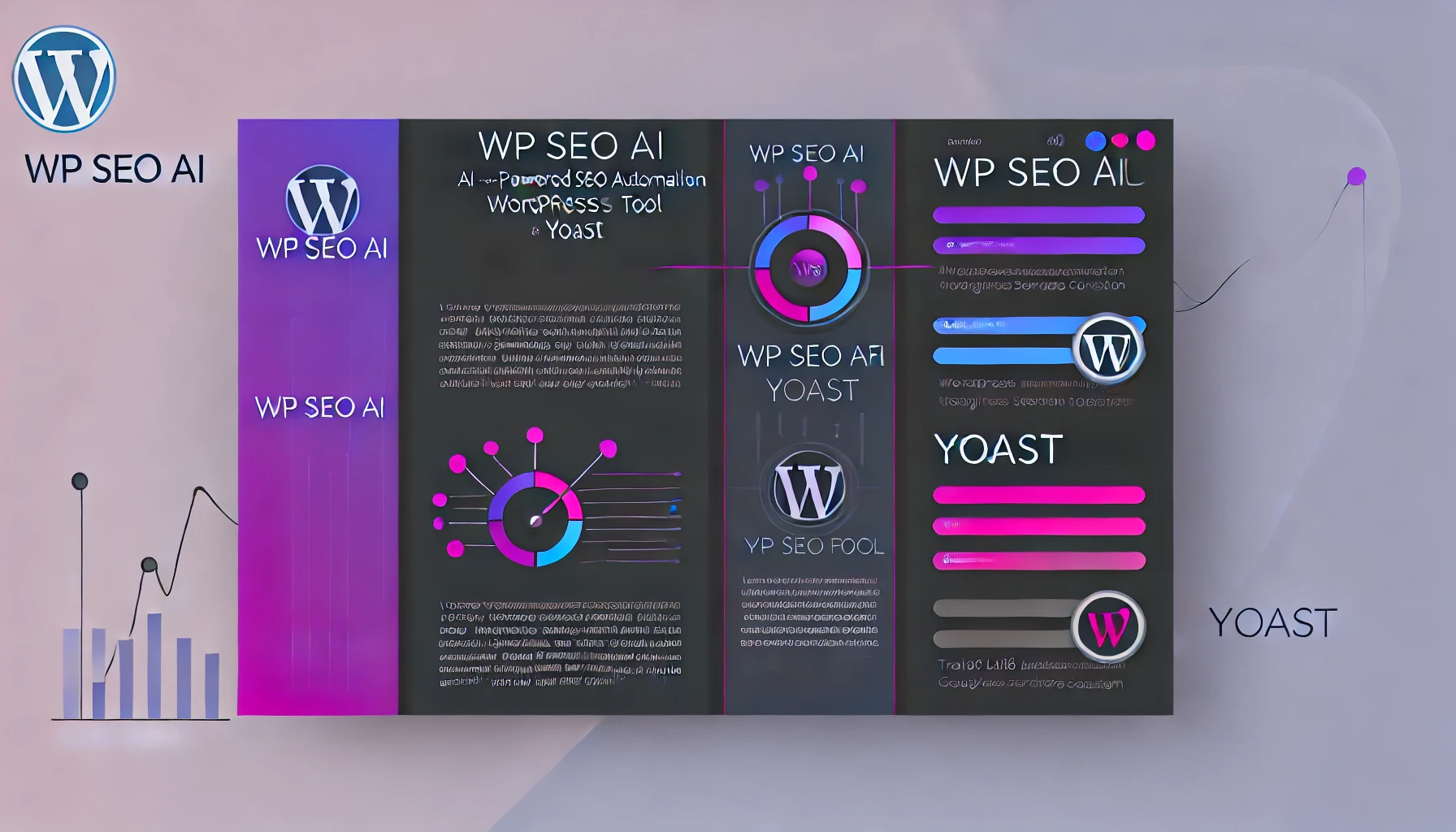WP SEO AI and YOAST: a perfect match
WP SEO AI indeed integrates seamlessly with Yoast SEO, making it a powerful combination for enhancing your website’s search engine optimization. WP SEO AI automates the creation of essential meta data, such as meta descriptions, optimized titles, and keyword suggestions, and automatically fills in the relevant input fields within Yoast SEO. This integration allows users to benefit from the advanced AI-powered features of WP SEO AI while using the familiar and robust on-page SEO guidance offered by Yoast.
By using both tools together:
- WP SEO AI can handle the heavy lifting of content generation, keyword analysis, and competitor tracking, automating much of the SEO workflow.
- Yoast SEO ensures that this AI-generated content is optimized with its well-established tools, providing manual checks on readability, keyword focus, and schema integration.
Key Differences Between WP SEO AI and Yoast SEO:
1. AI-Powered Features
- WP SEO AI: As the name suggests, WP SEO AI uses artificial intelligence to automate much of the SEO process. It can generate optimized content, analyze competitors, suggest keywords, and even automatically post content. This automation aims to save time by performing complex tasks like SEO audits, keyword research, and content creation at scale.
- Yoast SEO: Yoast is more traditional in its approach, providing users with manual SEO guidance. It focuses on on-page optimization through features like content readability analysis, keyword density checks, meta description suggestions, and schema markup. While highly effective, it doesn’t incorporate the same level of automation or AI for content generation.
2. Audience Focus
- WP SEO AI: Targets businesses and SEO professionals who are looking for an advanced, automated tool. It offers higher levels of customization and scalability, suitable for agencies and larger companies that need to generate vast amounts of content and monitor numerous keywords and competitors.
- Yoast SEO: Primarily serves a broader audience, from small businesses to beginner website owners. It’s more user-friendly and provides step-by-step guidance to help users manually optimize their content. It is highly accessible and commonly used by bloggers, small business owners, and content creators who prefer more control over their optimization.
3. Keyword and Content Analysis
- WP SEO AI: Focuses on micro-keywords and advanced keyword research. It uses AI to find gaps in keyword opportunities, generate content ideas, and create keyword-optimized titles. The AI automatically refines these based on search volume, keyword difficulty, and intent, making it a more dynamic solution.
- Yoast SEO: Offers a simpler keyword optimization tool where users manually input focus keywords. It then provides a traffic light system (green, yellow, red) to indicate how well the content is optimized. The process is less automated, and keyword research is expected to be done externally.
4. Competitor Tracking
- WP SEO AI: One of the standout features of WP SEO AI is its ability to track competitors’ rankings and content strategies. It uses this data to suggest improvements and content strategies that can outperform the competition.
- Yoast SEO: Does not have competitor tracking built into the platform. Users need to rely on external tools for competitive analysis.
5. Content Automation
- WP SEO AI: Offers automated content creation and publishing, allowing users to schedule posts and continuously generate SEO-optimized content. This can be particularly useful for large-scale operations that need to manage multiple blogs or content pieces.
- Yoast SEO: Focuses on manual content optimization. Users are guided through the steps of improving their content with on-page SEO tools, but it doesn’t provide content generation or automation.
6. Pricing
- WP SEO AI: A premium product with higher pricing aimed at enterprises and agencies. Pricing starts at around €420/month for the most basic plan and can go up depending on the number of keywords, blog posts, and features like competitor analysis.
- Yoast SEO: Offers both a free version and a premium version that starts at $99/year for one site. It’s far more affordable, particularly for individual site owners or small businesses looking for straightforward SEO optimization.
Similarities:
Both platforms aim to help websites rank better on search engines and offer features like:
- Meta data optimization.
- Keyword targeting.
- Content readability analysis (Yoast) vs. AI-driven content suggestions (WP SEO AI).
- Sitemap generation and integration with social media.
Conclusion:
- WP SEO AI is more suited for businesses and SEO agencies needing advanced, AI-driven automation for large-scale SEO projects, with more emphasis on automation, competitive analysis, and content creation.
- Yoast SEO is ideal for beginners, small businesses, and those looking for a more hands-on, guided approach to SEO without the need for AI-driven tools.
The choice depends on the scale of your SEO needs and whether you prefer automated solutions or more manual, customizable control.






